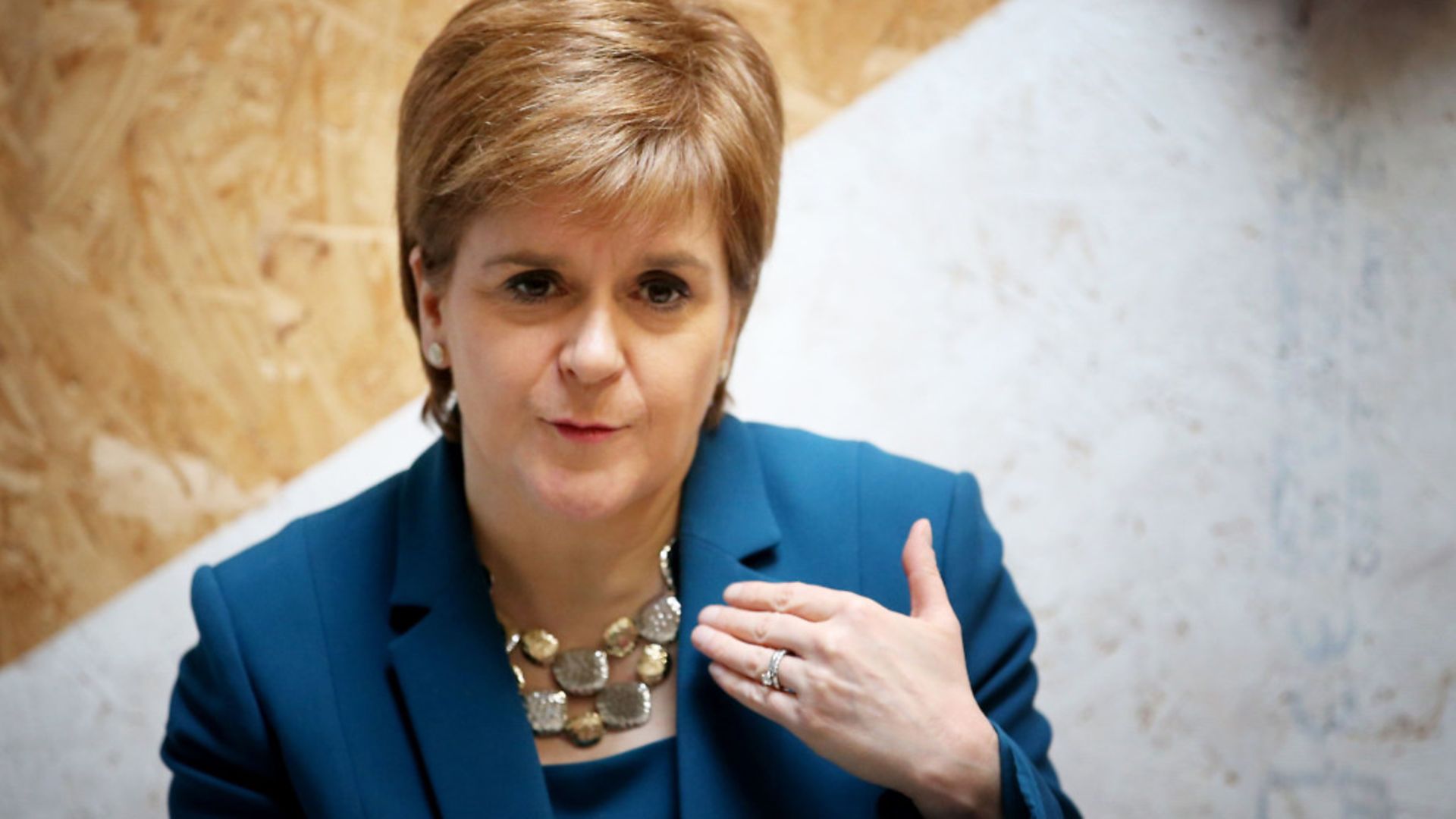
Scotland’s First Minister has made it clear that she will only support key Brexit legislation if further amendments are made by the UK government.
Nicola Sturgeon has insisted that if Holyrood were to give its consent to the current EU Withdrawal Bill, it would not be in Scotland’s ‘national interest’.
Changes made by Westminster, including the introduction of a sunset clause limiting how long Westminster could hold on to powers returning from Brussels, have secured the agreement of the Welsh to the bill.
Scottish Conservative leader Ruth Davidson called on the SNP leader to follow suit, saying while all parties at Holyrood had originally expressed concerns about the impact the legislation would have on devolution, changes were being made.
‘There is a deal to be done here, the Welsh back it, other parties in this chamber back it,’ Davidson said.
‘I say to her, for once will you do a deal in the national interest and not your nationalist interest.’
Prime Minister Theresa May has said it is ‘disappointing’ the Scottish government still cannot agree the bill, claiming ‘considerable changes’ have been made to the legislation.
Sturgeon insisted: ‘This deal is not in the national interest, that is why I won’t sign up to it.’
She added: ‘I don’t agree with the decision Wales has arrived at but I respect their right to take it, that is the nature of devolution.’
The sunset clause now included in the Bill would still allow the UK government to restrict Holyrood’s powers for up to seven years, the SNP leader told MSPs.
Speaking at First Minister’s Questions, she said if the Scottish government were to give it the go-ahead this could potentially ‘allow the UK Government to force us, perhaps, to lift our ban on GM crops’ and could also ‘force us to relax food standards regulations and perhaps open the door to US chlorinated chicken’.
The SNP leader claimed it could even restrict the Scottish government’s ability to tackle health problems such as obesity and alcohol abuse.
Davidson said: ‘Isn’t it the case that it doesn’t suit the First Minister’s political purposes to make a deal, so she is dancing on the head of a pin in order to find reasons not to.’
Westminster does not need the consent of the Scottish Parliament to introduce the Withdrawal Bill – but it could mark the first time the UK has pushed through legislation without the express consent of Holyrood.
As it stands Sturgeon claimed the bill resulted in a ‘heads they win, tails we lose’ situation with the UK Government.
‘I don’t think any self-respecting member of this Parliament should give those proposals the time of day and this government will not do that,’ she added.
‘If that means we are the only party prepared to stand up for the rights and powers of this Scottish Parliament then so be it.’
The dispute centres over whether powers returning from Brussels after Brexit should first go to London, to allow UK-wide frameworks to be established in areas such as farming and environmental regulations.
The First Minister said: ‘We are being asked to sign up to an agreement that would allow the powers of this Parliament in areas that really matter, like agriculture, fishing, the environment, state aid, public procurement – we are being asked to allow these powers to be removed for a period of up to seven years without the consent of this Parliament.’
She suggested two solutions to resolve the long-running dispute, saying Westminster must either drop clause 11 from the Bill or amend it to give Holyrood the ‘proper right to consent’.
Sturgeon said: ‘If the UK Government does either of these things then we have a deal.’










